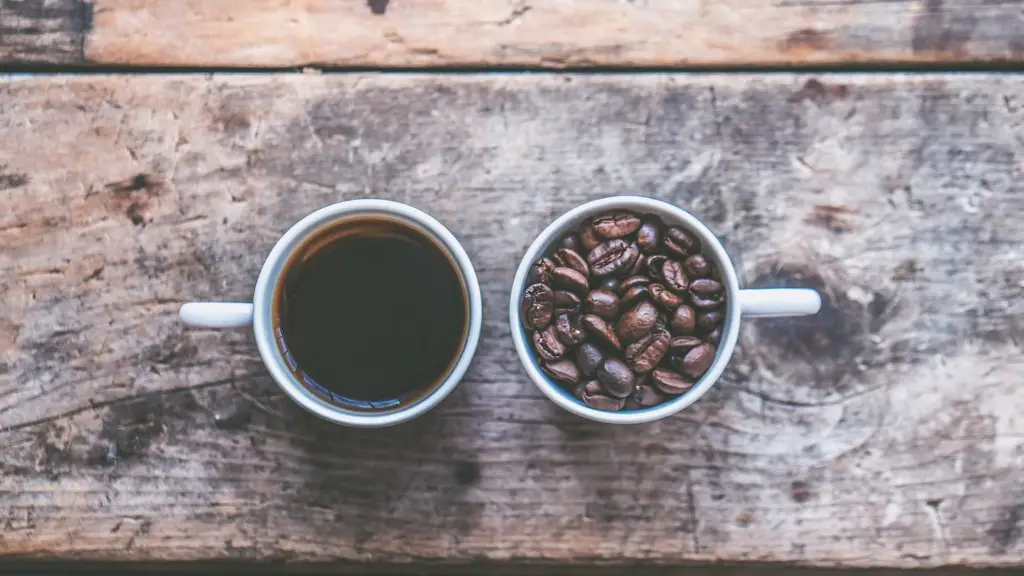Caffeine in Energy drinks vs. Coffee
Energy drinks and coffee both are popular caffeinated beverages. Many people often debate which one is better for your health. Although, caffeine in moderate to low doses is beneficial for mental performance, alertness and physical performance, too much of it can have adverse effects and it can be addictive. In this article, we will compare energy drinks and coffee to understand which one is the better choice for your health.
A Study on Caffeinated Beverages
A study conducted by the University of Padua, Italy, revealed that drinking both coffee and energy drinks in moderation can do little harm, as long as they don’t exceed your daily recommended caffeine intake. According to this study, people who drank one cup of coffee daily were less likely to develop type 2 diabetes than those who did not, while people who had more than four cups daily were more likely to develop the same. Furthermore, the study concluded that drinking up to four cups of coffee per day was not associated with any adverse health effects.
On the other hand, energy drinks have been associated with acute and chronic adverse health effects due to the high amount of caffeine and other ingredients present in them. People who consumed more than one energy drink per day had a higher risk of hypertension, anxiety and insomnia.
Pros and Cons of Coffee and Energy Drinks
Coffee has various benefits, including improved alertness, better concentration and improved physical performance. Additionally, coffee can improve cardiovascular health by reducing the risk of stroke and heart attack. However, drinking too much coffee can lead to irritability, palpitations, stomachache, and restlessness.
On the other hand, energy drinks provide quick energy boosts, improved alertness, and improved mental performance. They also contain ingredients like taurine, B vitamins and other elements that can help in improving bodily functions. However, consuming one can of an energy drink can lead to an increase in blood pressure, an increase in heart rate, and fatigue.
Caffeine Intoxication
High consumption of caffeine in the form of energy drinks can lead to a condition known as caffeine intoxication, which is characterized by restlessness, insomnia, nausea, and vomiting. People who consume more than 400 mg of caffeine per day are more likely to experience caffeine intoxication. This condition can have adverse effects on people who have underlying health conditions, such as cardiovascular and liver diseases.
Which Is Better: Energy Drinks or Coffee?
There is no definite answer to this question, as it depends on individual preference, lifestyle and underlying health conditions. If you are looking for healthy beverages, coffee is a better choice as it has many benefits. On the other hand, consuming energy drinks in moderation should not lead to any adverse health effects.
Summary of Health Benefits
Coffee and energy drinks both have their own set of benefits and risks. Drinking coffee in moderation can lead to improved alertness and concentration, improved cardiovascular health and improved physical performance. On the other hand, energy drinks can provide quick energy boosts, improved mental performance and improved bodily functions. However, excessive consumption of both can lead to adverse health effects.
Effects of Caffeine on Human Brain
Caffeine affects the human brain by blocking signals that are responsible for the feeling of sleepiness; it also increases alertness and improves physical performance. The effects of caffeine on the brain differ in each person, as it depends on individual metabolism and sensitivity to caffeine. Regular consumption of caffeine in moderate dosages can lead to tolerance, and the effects of the drug become less pronounced over time.
Effects of High Dosages of Caffeine
High dosages of caffeine can lead to increased heart rate, increased blood pressure and fatigue. It can also lead to addiction, anxiety, restlessness, and insomnia. In some cases, caffeine consumption can lead to dehydration, as it has a diuretic effect.
Alternatives to Caffeine
If you don’t want to have caffeinated drinks, there are other alternatives that can provide you with energy and improved performance. These include herbal teas, green tea, certain fruits, and nuts. In addition, you can also opt for natural energy boosting drinks such as coconut water, kombucha, and vegetable juices. This gives people the option to choose energy boosting drinks that are healthy and free of caffeine.
Nutritional Value of Energy Drinks vs. Coffee
Energy drinks typically contain a high amount of sugar, whereas traditional coffee does not contain any sugar. In addition, energy drinks can contain a variety of ingredients, including guarana, taurine, ginseng, and B vitamins, which are absent in coffee. Furthermore, coffee has been associated with various health benefits, whereas energy drinks do not have any proven benefits.
Conclusion
Both energy drinks and coffee have their own benefits and risks. It is always best to consult with your doctor before deciding which one is better for you. As long as you consume energy drinks in moderation and don’t exceed your daily caffeine or sugar intake, it should be safe to have.


